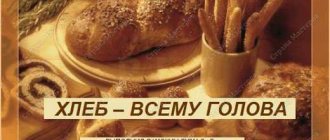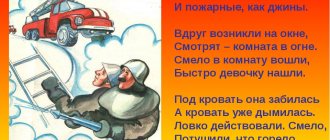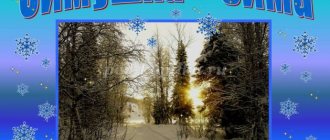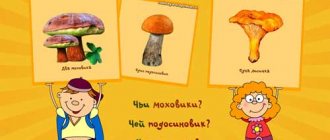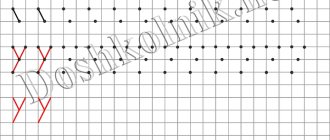MAGAZINE Preschooler.RF
Summary of the open lesson “Bread is the head of everything”Memory I remember from childhood the words about my grandmother’s bread: “Bread is always the master of the house” “Bread is the head of everything” And, collecting crumbs in her palm, barely thinking, looking down at her palm, she told me: “I remember the time dashing,
How I didn’t sleep at night, Curtained the windows in the house, Baked bread for the wounded. And then, risking my life, I put this bread in a bag and sent it to the troops so that the warrior could survive. So that there are no fascists on my native land, So that the sky is clear, Bread is always on the table. And, having said these words, She looked at me, And in the angular wrinkles, a tear appeared: “Take care of the Bread - the Shrine, Do not throw it away, After all, there is nothing in the world more valuable than these crumbs! Vera Berezko
Explanatory note
“Bread is the head of everything”
My beloved land, Where it smells like bread and honey, My favorite land with dew and rain, I love you at any time of the year, All this together - We call you Motherland.
We all live in the 21st century, new technologies are developing, new supermarkets and restaurants are opening, but the most valuable thing is being lost - the attitude towards the Russian land, its priceless wealth - bread, the work of the grain grower and plowman. Working in a kindergarten, I devote a huge role to instilling in children a love for their native land, a love for the Small Motherland. Carrying out a huge amount of work, I always think about how to instill in children a humane attitude towards bread, towards the backbreaking and responsible work of grain growers. How to make a little preschooler respect the work of other people? How to let children smell the grain field, hear the rustling of the ears, see and feel the beauty of the morning dawn, when the sun rises and the ears, rustling, reach for it; how the lark sings loudly in the sky and the grasshoppers chirp, and from behind a huge field the blue eyes of cornflowers peek out, as if someone’s eyes are watching the “bread”. In my work I often use stories from my childhood, from childhood memories and feelings, from my heart and from personal experience. And the result was not long in coming. Carrying out preliminary work before the lesson, which was interesting for the children, we read a lot, visited a wheat field, examined ears of wheat, watched a video of how equipment works in the field, looked at paintings depicting Russian antiquity, and how bread was grown in the old days. Already by the time of the lesson, the children had developed the knowledge that allowed them to be involved in the pedagogical process.
Summary “Bread is the head of everything”
Program content: - expand children’s knowledge of how bread is grown, convey to children that the bread on the table is the result of a lot of people’s work; — introduce children to the traditions of the Russian people related to bread; how bread was grown in the old days; - consolidate knowledge of old names: towel, zhito, loaf, sickle, generous, abundant, agronomist, plowman, etc. - fostering a caring attitude towards bread, fostering interest in the work of people who grow bread. Preliminary work: - conversation about the grain harvest, looking at illustrations about bread, memorizing proverbs and sayings; - examining ears of grain, sowing oats and wheat; — making bakery products from salt dough, reading the works of K. Paustovsky “Warm Bread”, K. D. Ushinsky “How a Shirt Grew in a Field.” Materials for the lesson: didactic game “From a grain to a bun”, ears of wheat, wheat shoots, bakery products, a tablecloth embroidered in the old days, a towel, a loaf.
Progress of the lesson: Children come in and say hello. Educator: - Guys, today we were invited on a trip, and where, guess the riddle: It makes noise and ears, Only rye and wheat grow there. (field) V.: - Guys, what grows in the field? (children's answers) We grew the magical spikelets together and now we need to remove them from the field. Pluck the spikelets and answer the questions.
V.: - Well, guys, let's complete the tasks! (children come up, pick 1 ear of corn, read it themselves) Guess the riddle: They beat me, cut me, turn me over, But I endure everything and cry kindly (children’s answers) (earth)
V.: - Yes, guys, our seas are deep, our fields are wide, our land is abundant, dear, generous.
Q: — Guys, why is it called “generous” land? (I summarize the children’s answers) V.: - What is the most important wealth on earth? (bread) (pluck the next ear, read) “Do you know where the bread came from on the table?” V.: - Let's tell us where the bread on our table came from? (children come out to tell)
1 child: Behind the forests, behind the meadows Thunder is heard in the field, These are tractors with plows Plowing the light black soil.
2 children: New machines have come out into the wide valleys, Look out the open window, Seeders are sowing grain.
3rd child: How much work has been put into this grain, Only the sun knows, Wind and water.
4 children: The grain growers sowed grain in the spring, It warmed up and became a golden wall, And the country heard, it’s time to harvest, For grain, combines and tractors are needed.
5 children: How many hands raised him and worked on the earth, After all, the grains did not immediately become the bread that is on the table.
Physical exercise “We are grains”
A grain fell into the ground, began to sprout in the sun, rain watered the ground, and the sprout grew, reached for light and warmth, and turned into a handsome man.
(children sit on chairs)
V.: - Yes, guys, grain growers have hard work. Let's now use the arrows to show how and where the bread came from on the table. (there are pictures on the table, children answer questions and put a picture with an arrow) Q: - What happens in the field in the spring? (children's answers) Children: - They go out into the tractor field and plow the land. Then tractors with seeders drive in and sow the grain. Shoots of wheat and rye appear. Hot days are coming, the wheat is ripening, and the harvest needs to be done. Harvesters and trucks enter the field. Q: - What are trucks for? where do they take the grain? (to the elevator) Q.: - What do they do with the grain at the elevator? (dry, clean, store) (children's answers) D: - Cars come and take the grain to the flour mill, where the grain is ground and flour is obtained. D: - Flour is taken from the flour mill to the bakery, where bread is baked. D: - Bread is taken from the bakery to the stores where we buy it. (Children put the pictures in sequence) V.: - Yes, guys, bread has traveled a long way before getting to the table. Name what bakery products we buy.
A didactic game “We buy in the store...” is being played.
Children pick the next ear, read for themselves: “Collect the picture and find out who works with whom.” The game “Who works with whom” is played. We have a combine - a combine operator works on the combine, etc.
A physical lesson is being held “And we plowed the arable land”
And we plowed the arable land, dug furrows in the field, The furrows are deep, the stripes are wide. We sow, we sow, we sow, we throw the grain into the arable land, go into the warm earth, rise up to the sun. And we are young reapers, we have golden sickles, We reaped life, laid it on the border, In the field - in haystacks, on the table - in pies.
Children pluck the last ear of corn and read: “How they grew bread in the old days.” V.: - What kind of bread were they baked for the holiday? (loaf) (children's answers) V.: - We said that the earth is generous, but Russian people are also generous and hospitable. In Rus', guests were greeted with bread and salt. On what holidays? (children's answers) (at weddings) V.: - Show the guests how they did it. (Girls come out and carry a loaf on a towel)
1 girl: In Rus', guests are greeted with a lush, round loaf It is on a painted platter With a snow-white towel.
2nd girl: They bring salt with the loaf of bread, bowing and asking to taste it, so that the good guest and friend can accept the bread and salt from their hands.
(Girls bow to the guests) V.: - The Russian people know many songs and proverbs. Do you know? Name it. (children name proverbs about bread) V.: - When was bread more expensive than gold? (during the Second World War) Q: How should you treat bread? (carefully) V.: - Yes, guys, without bread there is no life. To grow bread, you need to work hard, you need kindness, friendship, peace. (Giving out hearts)
V.: - What would you wish for all people? Children's answers: - We wish all people peace on earth! - Never quarrel! - May there always be bread! - So that all children have parents!
| Next > |
